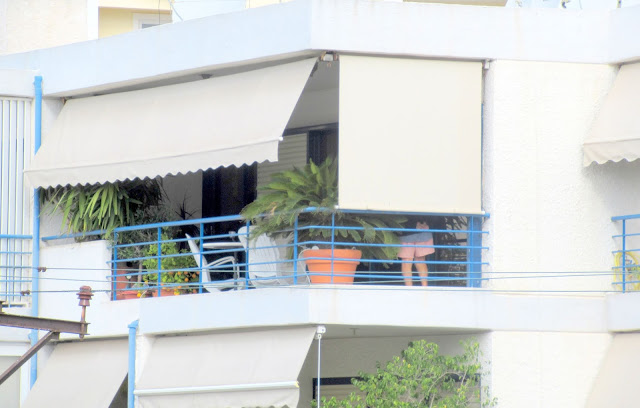We're into a full lockdown here in Greece until the first of December, but the general feeling is that it's going to be extended given that infections are still rising. What is fascinating for me, having lived under the spring lockdown in the UK, is seeing the differences, and assessing each government's priorities.
'Under the SMS system, cellphone users must send the toll-free 13033 hotline the number corresponding to one of six approved reasons to leave home, followed by their name and address.
The six reasons are:
1. Visiting a pharmacy or a doctor, the latter by appointment only;
2. Doing a shopping run to a supermarket or grocery store, when delivery is not an option; 3. Visiting a bank when an online transaction is not possible;
4. Providing assistance to someone in need or chaperoning children to/from school (schools are now closed)
5. Attending a funeral or exercising parental visitation rights;
6. Physical exercise or walking a pet – up to two people can engage in these activities on the condition that they maintain a distance of 1.5 meters from one another.
Written authorizations for people who need to travel for work or some other reason are available on the web.
There are two types of documents:
Document A, which is filled out once by the person going to work, with name, home address, work address, and shift schedule. This will be provided by employers.
Document B is for trips not related to work and must be filled out every time a citizen wishes to leave his or her house, instead of an SMS. It must contain name, home address, destination and reason for circulation.
Anyone leaving the house will have to carry a valid identification card or document with them in case they are stopped by police'.
The police carry out random spot checks to make sure people are travelling legitimately, and there are 300-500 euro fines for those who don't comply with the rules. Fines for businesses who flout the rules start from 5000 euros.
We can still go out for walks and swim and you can see other people as long as it's outside, you're masked and keep a distance. Masks are mandatory any time and everywhere outside the house, and there's a 9pm-6am curfew.
Being under lockdown in Greece, feels very different to what we experienced in the UK in the spring.
Even though under the rules it's obvious that different households are not to meet, we are not constantly bombarded with messages telling us that different households should not meet; there were no 'bubbles' of people allowed to meet once lockdown was relaxed as was the case in the UK in late spring and summer. The emphasis here is on economic activity and public life, rather than restricting people seeing their nearest and dearest. It's a different emphasis: one government has put the main responsibility and blame on individuals: every time the infection rate has gone up in the UK, rather than look at his own failures in implementing a coherent policy, Johnson has blamed people for not following the rules. The other government demonstrates clear, efficient leadership in administering measures to eradicate the virus. So, for instance, we are able to see my family as we all live in the same building - this would not be allowed in the UK, resulting in high levels of stress and subsequent mental health issues.
So, what does lockdown look like? On the first day, during our walk, we were able to see some of the places we had such fun in this summer - all shut down now, and looking abandoned and desolate.
Rayen
Pennarubia - you can see both here two months ago.
LeBon, our local, where we went for pre-dinner ouzos throughout the summer
Emagie, one of our favourite tavernas, which is round the corner from where we live
their outside space is empty and deserted, and looks oh! so small without the tables and chairs.
Finally, the whole time I have been writing this post, I could see through the glass doors of our sitting room, across the road, this man who was walking from one end of this tiny balcony to the other, performing his daily exercise. A perfect image of lockdown!






No comments:
Post a Comment